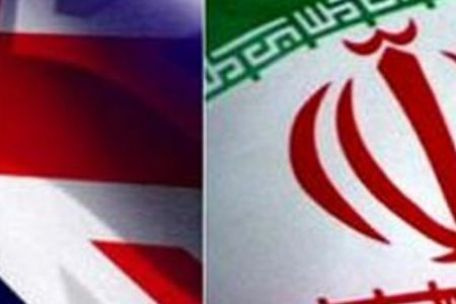Tough Decision for Britain

By: Sadegh Kharrazi
Once again the trouble in the relations between Iran and Britain has come to the surface. Following the decision, a few weeks ago, of the British government to sanction the Iranian Central Bank for Iran’s alleged illicit nuclear activities, Iranian Parliament retaliated and downgraded the level of relations between the two countries to the level of Charges d’ Affaires. The Iranian anger went out of control last week when students attacked the British Embassy premises in Tehran to be ejected by the police later. Britain responded by closing its Embassy in Tehran and by ordering the closure of the Iranian Embassy in London and expelling its entire staff.
Iran and Britain have had rocky relationships since the two countries established relations in the 13th century. The Iranian general public has no good memory of British activities in Iran during the last centuries. British governments, and not the people, are known in Iran to be deceptive. There are good reasons for such an assertion. British influence over corrupt Shahs during Qajar dynasty to extract special treatment and concessions for British companies led to popular resentment against its involvement in Iran’s affairs in that period.
The Iranian people can never forget that it was Britain that brought Reza Shah to power in 1921 and it was Britain that removed him from throne when the British-Soviet invasion of Iran took place during World War II which practically divided the country into two parts under the control of two world powers of the time. And then in 1953 the British were at work again when American spy agency with the help of its friends in London staged the notorious coup against the nationalist government of Dr. Mosaddegh and toppled him. UK continued its support for the Shah of Iran until the revolution succeeded in 1979. It has taken a hostile position against the Islamic Republic since then, the most vivid example of which is the British support for Saddam Hussein during the Iran-Iraq war. The British government has also supported the MKO terrorist group and has provided shelter for its members in UK. London was instrumental last year in removing the name of this terrorist organization from the terrorist list of the European Union.
The recent decision of the British government to include the Iranian Central Bank in its sanctions is considered by some lawyers as an act of war against Iran. However, the attack against the Embassy in Tehran which did not have the blessing of the Iranian leadership contrary to what UK officials have asserted is not justifiable under any circumstances. It is against the 1961 Vienna Convention on Diplomatic Relations particularly Article 22 which considers the premises of diplomatic missions inviolable. At the same time, the decision of Britain to expel the entire Iranian diplomatic personnel in that country is against the spirit of the said Convention. Branding the entire members of the Iranian diplomatic mission in London as persona non grata is in fact a misuse of the authority of the receiving state as stipulated in Article 9.1 of the Vienna Convention. The decision to close the Iranian Embassy has deprived Iranians and others living in that country from consular services. It is contrary to the provision of Article 3.2 of the said Convention which states “Nothing in the present Convention shall be construed as preventing the performance of consular functions by a diplomatic mission.”

